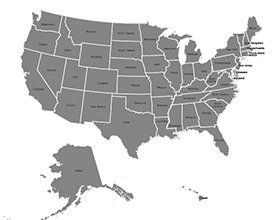Benefit Buzz - November 2022
Benefit tips brought to you by MFC Benefits, LLC

Learn more about IRS Changing Family Coverage Affordability Rules and Health FSA Limit Increasing:
IRS CHANGES FAMILY COVERAGE AFFORDABILITY RULES
On Oct. 11, 2022, the IRS released a final
rule that changed the premium tax credit
(PTC) eligibility rules for family members.
This change is effective for taxable years
beginning after Dec. 31, 2022.
The PTC is available to eligible individuals
who purchase health insurance coverage
through an Exchange. Individuals are not
eligible for the PTC if they have access to
employer-sponsored health coverage that is
affordable and provides minimum value.
Effective for 2023, the final rule changes
the PTC rules for determining whether
employer-sponsored coverage is affordable
for family members. Currently, this
determination is based on the lowest-cost
self-only coverage available to the
employee. Under the final rule, an
employer-sponsored plan is affordable for
family members if the portion of the annual
premium the employee must pay for family
coverage (the employee’s required
contribution) does not exceed 9.5% (as
adjusted annually) of household income.
The final rule does not change the
affordability rules for employees.
Employees will continue to have an offer of
affordable employer coverage if the
employee’s required contribution for selfonly coverage does not exceed 9.5% (as
adjusted) of household income.
Additionally, this new guidance does not
affect the Affordable Care Act’s “pay or
play” penalties for applicable large
employers (ALEs), as these penalties are
triggered only when an employee receives a
PTC, not a family member. According to the
IRS, this new guidance also does not impact
an employer’s reporting requirements
under Internal Revenue Code Sections 6055
and 6056.
HEALTH FSA LIMIT WILL INCREASE FOR 2023
On Oct. 18, 2022, the IRS released Revenue
Procedure 2022-38
(Rev. Proc. 22-38) to
announce various inflation-adjusted tax
limits for 2023, including the limit on
employees’ salary reduction contributions
to health flexible spending accounts (FSAs)
offered under cafeteria plans.
Rev. Proc. 22-38 increases the health FSA
dollar limit on employee salary reduction
contributions to $3,050 for plan years
beginning in 2023.
This is a $200 increase
from the 2022 health FSA limit of $2,850.
Rev. Proc. 22-38 also increases the
maximum carryover limit for a health FSA to $610 for 2023
(from $570 for 2022).
Employers should ensure that their health
FSAs will not allow employees to make pretax contributions in excess of $3,050 for the
2023 plan year and communicate the 2023
limit to their employees as part of the open
enrollment process.
An employer may impose its own dollar
limit on employees’ salary reduction
contributions to health FSAs as long as the
employer’s limit does not exceed the IRS’
maximum limit in effect for the plan year.
For example, an employer may decide to
limit employee health FSA contributions for
the 2023 plan year to $2,500.
Provided to you by MFC Benefits, LLC
© 2022 Zywave, Inc. All rights reserved
Download the PDF copy here.











